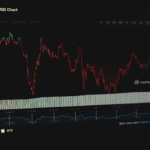
Decentralized exchanges (DEXs) have rapidly become a critical component of the cryptocurrency ecosystem, especially for traders employing sophisticated strategies. These platforms enable users to trade cryptocurrencies directly from their wallets without relying on a centralized authority, offering both significant advantages and unique challenges.
Advantages of Decentralized Exchanges for Advanced Trading
One of the primary advantages of DEXs is the non-custodial nature of these platforms. Users retain full control over their private keys, which minimizes the risk of losing funds due to exchange hacks or mismanagement. This autonomy is particularly beneficial for advanced traders who prefer to manage their own security protocols.
Additionally, DEXs are permissionless and private, allowing users to trade without undergoing identity verification or facing geographical restrictions. This global accessibility can be advantageous for traders looking to exploit arbitrage opportunities across different markets.
Another significant benefit is the ability to access early-stage tokens. Many tokens are listed on DEXs before they appear on centralized exchanges, providing savvy traders with the opportunity to acquire assets at potentially lower prices. This can be a critical advantage in executing high-reward strategies.
DEXs also offer greater composability, enabling advanced users to participate in decentralized finance (DeFi) protocols that are interconnected. For example, traders can provide liquidity to a pool, receive a liquidity token, and use that token in other DeFi services such as lending platforms, thus maximizing their capital efficiency.
Challenges in Using Decentralized Exchanges
Despite these advantages, DEXs come with challenges that can complicate advanced trading strategies. Liquidity is a significant concern on many DEXs. Unlike centralized exchanges, which often have deep liquidity pools, DEXs can suffer from lower liquidity, leading to higher slippage and difficulty in executing large orders without impacting the market.
The responsibility for security is another challenge. In a DEX environment, users are solely responsible for safeguarding their private keys and funds. The risk of sending assets to the wrong address or interacting with malicious contracts is ever-present. The absence of customer support or legal recourse in the event of a mistake or hack adds to the complexity and risk.
Higher transaction costs are also a factor to consider. Trading on DEXs often incurs higher fees, particularly during network congestion, as seen on platforms running on the Ethereum blockchain. These costs can quickly accumulate, especially when executing complex, multi-step strategies.
Lastly, front-running or sandwich attacks, where other traders manipulate transaction ordering to profit at the expense of others, is a prevalent issue on DEXs. While some advanced platforms have introduced measures to mitigate this, it remains a vulnerability that sophisticated traders need to navigate carefully.
Discover Digital Asset Opportunities with Kenson Investments
At Kenson Investments, we specialize in supporting your unique financial goals within blockchain asset portfolios. Although we don’t offer tax advice, our commitment to transparency in digital assets ensures you’re in reliable hands.
Let Kenson Investments be the change in your digital asset strategy. Join us in moving the industry forward securely and transparently!














